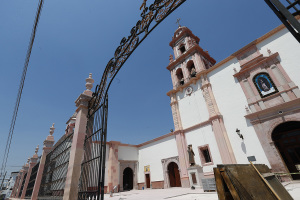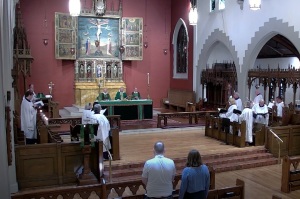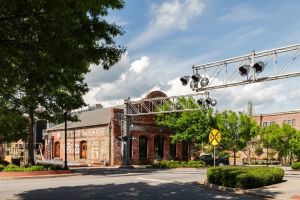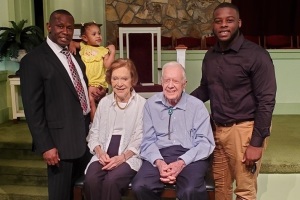Catholic Bishops Stand With 'Conscientious Objectors' Against Gay Marriage
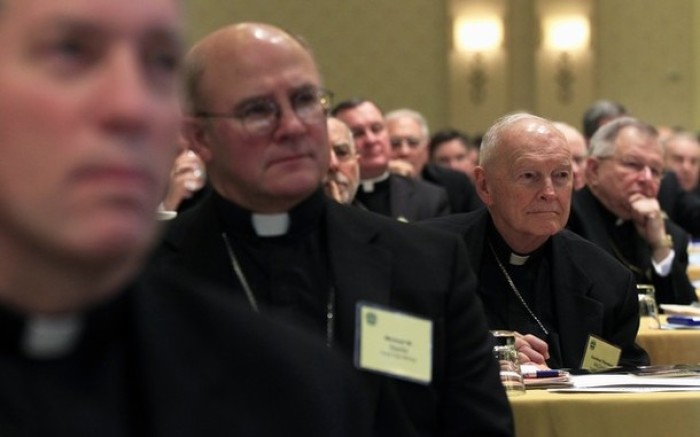
Catholic Bishops are standing with those who conscientiously object to gay marriage and maintain their opposition to the U.S. Supreme Court's ruling legalizing gay marriage nationwide.
These pro-traditional marriage views were expressed during the U.S. Conference of Catholic Bishops' fall General Assembly meeting, the first meeting for the bishops since the 5-4 Supreme Court ruling in Obergefell v. Hodges.
Bishop Richard J. Malone of the USCCB Committee on Laity, Marriage, Family Life, and Youth explained Monday afternoon at the gathering in Baltimore what the Church intends to do in the wake of the landmark decision.
"We will continue to defend religious freedom and conscience rights of those who are punished for their religious beliefs and moral convictions about marriage, including the human right to conscientious objection," said Malone.
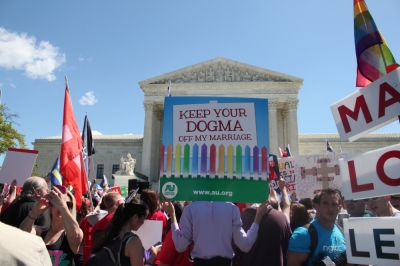
"The Obergefell decision raises many questions and challenges which require pastoral attention, including questions of evangelization, catechizes, education, and ministry."
Malone was not only the only bishop of the American Church present to express opposition to the Supreme Court decision from June.
Archbishop Joseph Naumann of Kansas City, Kansas, stated that the high court's decision should not be the final word on the debate.
"I think we have to be as strong as we have on the pro-life issue," said Naumann, as reported by The Associated Press.
"I don't think because five Supreme Court justices changed the public policy on such a fundamental issue that we should just accept it."
Authored by Catholic Justice Anthony Kennedy, the Supreme Court's majority opinion in Obergefell noted that while gay marriage should be legal Americans could continue to publicly object to the practice.
"Finally, it must be emphasized that religions, and those who adhere to religious doctrines, may continue to advocate with utmost, sincere conviction that, by divine precepts, same-sex marriage should not be condoned," wrote Kennedy.
"The First Amendment ensures that religious organizations and persons are given proper protection as they seek to teach the principles that are so fulfilling and so central to their lives and faiths, and to their own deep aspirations to continue the family structure they have long revered. The same is true of those who oppose same-sex marriage for other reasons."
Despite the words, many have expressed concern that the Obergefell decision does not adequately protect the religious liberty of groups and individuals opposed to gay marriage.
Malone's and Naumann's comments were part of the USCCB's fall General Assembly meeting, which took place Nov.16-17.
The agenda included several items pertaining to issues like marriage, abortion, pornography, immigration reform, military services, and charitable relief efforts.
USCCB President Archbishop Joseph E. Kurtz gave a formal address to the gathering on Monday, stressing that their "calling is to be present in this world, in the very places where people are hurting the most."
"Our ministries are designed to give people hope, to walk alongside them, to provide practical help, but also to show them the way to Jesus and the transformative power of His love and grace," stated Archbishop Kurtz.
"What a great tragedy it will be if our ministries are slowly secularized or driven out of the public square because of short-sighted laws or regulations that limit our ability to witness and serve consistent with our faith."

















